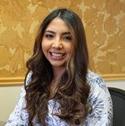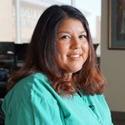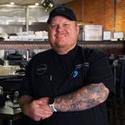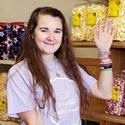Growing Pathways to STEM Scholarship
Application is available October 1 - March 1
Funded by the National Science Foundation
Project GPS (Growing Pathways to STEM) Scholarship Eligibility Requirements
- Graduating high school senior or first-time, current or returning college student
- Must be a U.S. citizen or eligible non-citizen
- Demonstrate financial need by completing the Free Application for Federal Student Aid (FAFSA) at www.studentaid.gov
- Funding for up to $8,650 of unmet need per year to be used for tuition, fees, books and supplies, transportation, and personal expenses
- Minimum GPA of 3.0
- Attend Columbus Campus
- Provide two letters of support, one of which must be from a STEM instructor
- Scholarship is renewable based on a minimum 3.2 GPA
University of Nebraska at Lincoln, Nanoscience Center, 2019
Barn/Cliff Swallow Project, Columbus July 11, 2019
GPS Photos

2018-2019 GPS Scholars: (left to right) Andres Espino, Michael Bates, Alex Koch, Alejandro Espino, Jenessa Grooms, Elizabeth Ewing, Kayla Kreizel, Landon Sokol, Tychique Kutalu, Dyland Smith, Laura Nichols (not pictured).
Meet the Project GPS Leadership Team
- Steve Heinisch
- Dr. Lauren Gillespie
- Dr. Neal Grandgenett
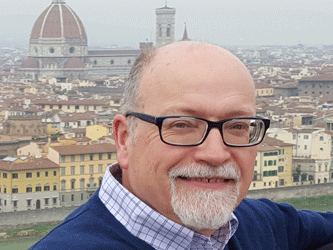 Project Director
Project Director
I’m Steve Heinisch, biology instructor at Central Community College-Columbus, and principal investigator for Project GPS. I’m a native Nebraskan and have been a part of this campus for over three decades, teaching a wide array of biology courses: general biology, human biology, environmental science, botany, zoology, genetics, microbiology, and our new principles of biology sequence for majors. I have long believed that the best way to learn about science is to do it, to experience it, to feel its relevance in your own life. It doesn’t matter where you start, but if you feed your curiosity and have an open mind, you will learn. Interactions with nature and with other curious people are critical! I received my bachelor of science degree in biology from Nebraska Wesleyan University and my master’s degree in life sciences from the University of Nebraska-Lincoln, researching prairie ecology in the state’s Sandhills’ region. I recently completed a sabbatical study on the success of community college students transferring into four-year biology programs or transitioning into the workplace. I have been active in supporting sustainability efforts at the college and have worked on establishing a pre-environmental studies transfer program.
My wife, Rosie, is also employed at CCC, serving as the director of the TRiO program. We enjoy playing with our two grandsons and our two dogs, watching movies, and traveling. We also are both involved in music at our church.
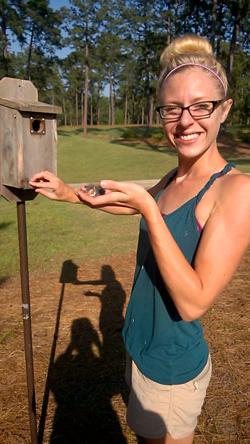 Project Director
Project Director
I am a first-generation college student from rural Maine. I attended the University of Massachusetts-Amherst on a Division I field hockey scholarship and fell in love with animal behavior along the way. I first began substitute teaching at 18 years old and coached varsity field hockey after graduating with a bachelor of science in animal behavior in 2009. I worked as an avian field research assistant for Texas Tech University and the Cary Institute of Ecosystem studies and pursued my Ph.D. in biology at the University of Southern Mississippi. I taught 15 semesters of introductory biology laboratory courses, and my research explore effects of human altered habitats on hormones (testosterone and corticosterone, the bird stress hormone), multiple behaviors, and plumage colors in eastern bluebirds.
I have mentored and trained 17 undergraduate students in research, attended multiple international conferences, and secured $15,000 in funding from the U.S. Department of Defense, North American Bluebird Society and National Science Foundation (NSF) prior to my time at CCC. After my doctoral work, I was awarded a research fellowship through the NSF’s East Asian-Pacific Summer Institutes program; I traveled to Taipei, Taiwan, researching hermaphroditic mangrove killifish, and how exposure to the herbicides impacted aggression and hormones. Hard work, perseverance, and accepting support and guidance from those around me has helped me to achieve my goals, and I believe that journey-oriented, hands-on learning is critical to developing critical thinking skills and a passion for science, or any discipline! I believe one person can make a positive difference in their community, our society and the world through compassionate pursuit and dissemination of knowledge.
I have two miniature schnauzers named Darwin and Lola, and I love to spend my free time keeping in touch with family and friends, reading, gardening, and spending time outdoors.
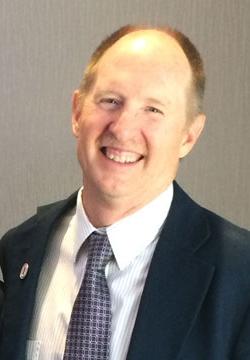 Project Evaluator
Project Evaluator
Dr. Neal Grandgenett is the Dr. George and Sally Haddix Community Chair of STEM Education in the College of Education at the University of Nebraska-Omaha where he teaches undergraduate and graduate courses in interdisciplinary STEM learning, data-driven decision-making, and research methods. He also leads the UNO STEM Leadership team in undertaking instruction-related initiatives that have crossed the UNO campus. His research interests include the investigation technology-based learning in STEM education, and he has authored over 140 articles and research papers as well as five book chapters and one book. Grandgenett has been a PI or CoPI on nearly $18,000,000 in federal grants, and has been the investigator or co-investigator on 12 different National Science Foundation grants. His teaching, research and service efforts at UNO have resulted in various recognitions, including the NU Outstanding Teaching and Instructional Creative Activity Award, UNO Chancellor’s Medal, Alumni Teaching Award, Distinguished Research and Creativity Award, Peter Kiewit Professorship, Paul Kennedy Diamond Professorship, Nebraska Technology Professor of the Year Award, and NASA Mission Home Award. Grandgenett is also a U.S. Marine Corps veteran (sergeant) and a former middle school mathematics teacher.
FAQs
- You must be a new or current full-time CCC student who is attending for the 2018-19 fall and spring terms on the Columbus Campus.
- Applications are restricted to students who are U.S. citizens or eligible non-citizens qualifying for federal financial aid after filling out the Free Application for Federal Student Aid at www.studentaid.gov.
- Students are not required to be a Nebraska resident.
- You must include two letters of recommendation with your application, and one must be from a STEM-area instructor.
This depends upon the number of applicants, an individual applicant’s amount of unmet financial need according to the FAFSA, and the amount of money budgeted per year for scholarships. For the 2018-19 academic year, 11 students were awarded scholarships.
- You must be pursuing an associate of science or academic transfer degree in a STEM-related area with the intention of transferring to a four-year school or working in a STEM-related job.
- You must enroll as a full-time student CCC-Columbus.
- You must have a minimum 3.0 GPA as a new or current full-time CCC student and must maintain a 3.2 GPA for scholarship renewal.
Students will be given one semester to show improvement should their GPA fall below 3.2. Eligibility reviews will be conducted by mentors and financial aid officers at semester’s end to monitor eligibility. Hardships will be taken into account and determination of award continuance will be at the discretion of this team.
You can apply for this and all other CCC scholarships online.
To be in the selection pool for the next group of GPS scholars in fall, you must apply by March 1.
Late applications will be considered on a first-come basis pending availability of funds and number of applicants. Students should contact either Steve Heinisch at sheinisch@picturesofcornwall.net or Dr. Lauren Gillespie at laurengillespie@picturesofcornwall.net and visit with their financial aid director to discuss their options.
What if I do not see the option to select the GPS scholarship listed on the general scholarship application? Am I still eligible and how do I apply?
As a returning CCC student, you will not see the option to select the GPS scholarship when you apply. You must contact the CCC instructor who is writing your letter of recommendation to ensure that they have given your name to the Project Directors: Steve Heinisch and Dr. Lauren Gillespie. This will ensure your application is filtered into the proper GPS scholar application pool.
Program Information
Project GPS stands for “Growing Pathways to STEM.” It is a scholarship-awarding program sponsored by the National Science Foundation. CCC was awarded this grant in August 2017. It provides scholarships to FAFSA-qualifying students interested in science, engineering and related fields. Students selected for the scholarships become part of a cohort group, and all cohorts will consist of “GPS scholars,” who get to take part in special educational and career development programs. It will serve students through the 2021-22 academic year.
"The National Science Foundation (NSF) is an independent federal agency created by Congress in 1950 ‘to promote the progress of science; to advance the national health, prosperity and welfare; to secure the national defense...’ The NSF's goals – discovery, learning, research infrastructure and stewardship – provide an integrated strategy to advance the frontiers of knowledge, cultivate a world-class, broadly inclusive science and engineering workforce and expand the scientific literacy of all citizens, build the nation's research capability through investments in advanced instrumentation and facilities, and support excellence in science and engineering research and education through a capable and responsive organization."
As a GPS scholar, you will have two (2) years of educational costs paid in full (unmet financial need per the FAFSA; including tuition and fees, room and board). Faculty mentors will work individually with you, giving you access to educational and professional training in subject areas of your interest. As part of your cohort, you will explore various career options by touring local business’, industries, and other institutions of higher education. You and your fellow cohort-scholars will form a bond together as you pursue similar paths, build a network of relationships, and have the privilege of counting yourself among a special network of individuals earning a National Science Foundation scholarship!
You will take part in an orientation experience at the start of the fall semester with your cohort. During this time, you will get to know one another and will be matched with a faculty and industry mentor. Workshops will include (but are not limited to) sessions covering study skills, online resources, team-building and time management. You will brainstorm with your cohort and faculty/industry mentors to plan and implement a project that will serve your community. Initial start-up projects for 2018 may be part of an ongoing CCC foundation-funded ecology research program; specific project avenues pursued will be specific to each cohort’s composition of individual interests and skills.
For example, the ecology research program currently focuses on how birds use nest boxes in relation to different types of land development and human activity. Currently, there are nest boxes on the Columbus Campus and a local park with some boxes near street lamps. Scholars have the chance to examine the impacts of artificial light on wildlife while also working with industry partners to examine light energy consumption in the Columbus community and on campus. This is just one example of how GPS scholars and mentors will work together to implement science-geared community service projects.
Each summer, GPS scholars will be required to take part in job shadowing, applied research or internships offered through the research and business/industry relationships. Students will have the opportunity to actively collect data and travel to present findings at an international research conference, or land an internship at a local industry with the potential to be hired right after graduation! Scholars will have the opportunity to spend time in the workplace shadowing someone in their field or doing a summer internship to get real on-the-job experience.
Classes may be taken in the summer but are not required by the program. Orientation in the fall and a job shadow/research experience are required.
Steve Heinisch and Dr. Lauren Gillespie are co-directors of Project GPS. Heinisch did his graduate research in plant ecology and has taught a wide range of science courses in his years at Central Community College. He has also researched the success of community college students in the workplace and at transfer institutions throughout Nebraska. Gillespie’s graduate research addresses how ecology influences hormones and the behavior of birds, fish and humans, and she is actively establishing study sites in our area. She has taught biology courses at Central Maine Community College and biology laboratory courses at the University of Southern Mississippi. In addition to the principal Investigators, you will interact with other faculty mentors in various areas (math and statistics, engineering, physics, information technology), as well as representatives from local businesses (Loup Power District, Pillen Family Farms, DNA Genetics, and Behlen Manufacturing). And of course, you will work closely with other GPS scholars!


